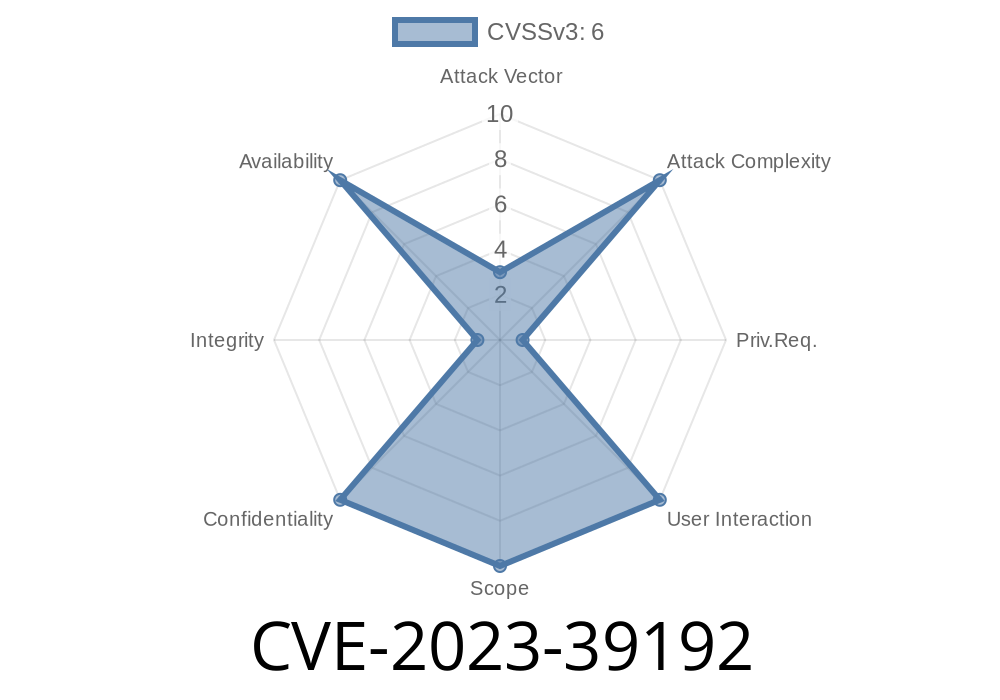In August 2023, a security vulnerability (CVE-2023-39192) was found in the Linux kernel’s Netfilter subsystem. Netfilter is the core framework behind powerful tools like iptables and nftables, which network admins use every day to control traffic. This flaw specifically affects the xt_u32 module, which is designed to match data at specific offsets in packets using 32-bit patterns.
If you run recent Linux, especially on servers or network appliances, you’ll want to pay attention to this bug. In this post, I’ll break down what exactly was wrong, how it can be exploited, share a code snippet, and show you where to find more info.
Technical Details
The xt_u32 module helps filter packets by examining 32-bit values at certain offsets. When you add u32 matches in iptables like this:
iptables -A INPUT -m u32 --u32 "x=x12345678" -j DROP
The kernel parses and stores your ruleset using a data structure (xt_u32). This flaw is in how it handles the size fields (like nnums) in that structure: it doesn’t check if you’re providing values that go beyond the internal array boundaries.
A "local privileged attacker" (typically root or someone with CAP_NET_ADMIN) can take advantage by constructing rules with deliberately oversized field values. If the kernel reads past the end of an array due to this, it could crash (kernel panic), or—worse—leak sensitive data from kernel memory back to userland.
Impact: System crash, potential kernel memory leak (info disclosure)
- Affected versions: Most Kernel versions before August 2023 with Netfilter/xt_u32 built-in
- Fixed in: Linux mainline kernel 6.5-rc6 (commit)
Exploit: Reproducing the Crash
Below is a simple exploit code snippet in C that shows how a privileged user might trigger the bug. WARNING: Don’t run this on any machine you care about!
#include <stdio.h>
#include <stdlib.h>
#include <string.h>
#include <linux/netfilter/x_tables.h>
#include <linux/netfilter/xt_u32.h>
#include <sys/socket.h>
#include <linux/netlink.h>
#include <unistd.h>
int main() {
struct xt_u32 u32info;
memset(&u32info, , sizeof(u32info));
// Deliberately set an out-of-bounds value
u32info.nnums = 256; // Much greater than storage allows!
// Normally, you'd inject this through iptables or netlink
// Here's a pseudocode hint:
//
// iptables -A INPUT -m u32 --u32 "x=x12345678,...(repeat >64 times)..."
//
// Linux kernel will process u32info.nnums as array size,
// leading to an out-of-bounds read.
printf("If this is accepted by iptables, kernel will crash or leak info!\n");
return ;
}
> Note: Most distros now block this at userspace, so you may need to build/bind your own module or kernel if you're researching.
Patch the Kernel:
Upgrade to any Linux kernel with this commit merged (Mainline 6.5-rc6+, backports available).
Only give CAP_NET_ADMIN to trusted users and services.
- Monitor dmesg/kern.log for panics or strange messages linked to Netfilter.
References & Further Reading
- Red Hat Security Advisory
- Mitre CVE page
- Original kernel patch
- Netfilter documentation
Key Takeaways
- CVE-2023-39192 is a classic case of missing bounds check leading to a dangerous out-of-bounds read in the Linux kernel’s firewall engine.
The fix is easy: patch your kernel, and keep admin rights tight.
Keep your systems updated and stay safe! If you want deeper technical details or proof-of-concept code, check the reference links above or follow kernel mailing lists for up-to-the-minute info.
Timeline
Published on: 10/09/2023 18:15:10 UTC
Last modified on: 11/07/2023 04:17:27 UTC
